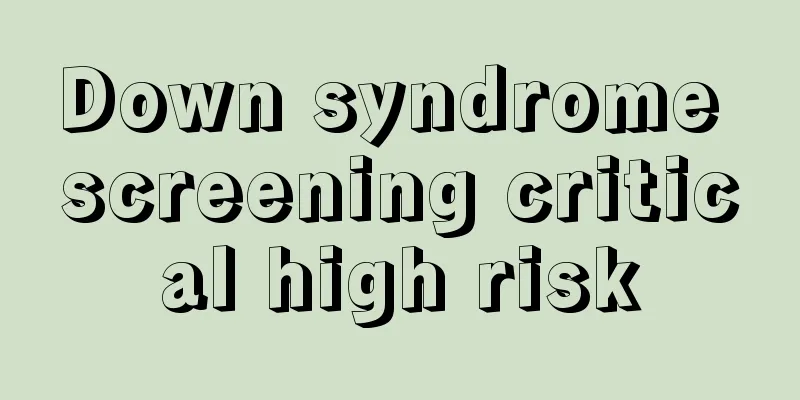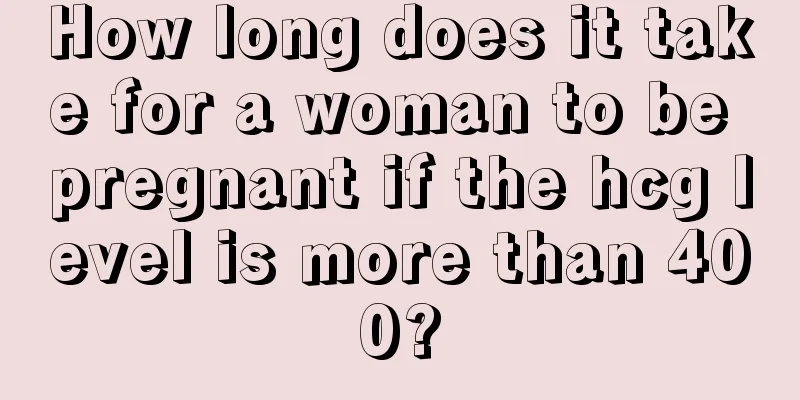Down syndrome screening critical high risk

|
A critical high risk result in Down syndrome screening indicates, to some extent, that there is a problem with the fetus. A critical high risk result in Down syndrome screening may be due to chromosomal abnormalities. There are many factors that determine whether a Down syndrome screening result is critically high, such as environmental, genetic factors, etc. If a pregnant woman is detected to be at borderline high risk for Down syndrome, she should not panic too much, because further confirmation is needed to determine whether there is a problem with the fetus, such as through amniocentesis. Fetuses with Down syndrome are not exclusive to older pregnant women. Although older pregnant women over 35 years old are closely related to Down syndrome, the older the age, the greater the chance of giving birth to a child with Down syndrome. However, young women may also give birth to children with Down syndrome, and only 20% of Down syndrome occurs in older pregnant women, while the other 80% of Down syndrome fetuses are born to young pregnant women under 35 years old. Therefore, if only older pregnant women are examined, it will not be a good way to prevent Down syndrome. If all pregnant women were offered amniocentesis or chorionic villus sampling. Not only is the cost relatively high, it also increases the chance of miscarriage, so it is not necessary for all women to undergo amniocentesis or chorionic villus sampling. Currently, the best way to prevent Down syndrome is that all young pregnant women undergo Down syndrome screening tests, and those who are shown to be at high risk undergo amniocentesis or chorionic villus sampling. Through amniocentesis or chorionic villus sampling, it can be determined whether the fetal chromosomes are normal and whether the fetus has Down syndrome. Young pregnant women under the age of 34 should undergo Down syndrome screening. The test can be performed between 15 and 20 weeks of pregnancy, preferably between 16 and 18 weeks. Pregnant women who are over 34 years old, women with Down syndrome in their family, and women who have given birth to children with Down syndrome are already at high risk, so they do not need to undergo Down syndrome screening and should go directly to amniocentesis or chorionic villus sampling. |
<<: Armpit odor after childbirth
>>: Down syndrome screening for chromosomal abnormalities
Recommend
Dark nipples during pregnancy
Women experience many physiological changes durin...
Pain on both sides of lower back in women
Women's bodies are relatively weaker, which m...
What to do if there are lumps in the accessory breast after childbirth
In life, women all have accessory breasts, especi...
Can I eat Shanghai Qing during menstruation?
We know that menstruation is a very special perio...
Fast breast enhancement essential oil method
There are many ways to enlarge breasts. Women oft...
Can pregnant women eat bananas?
For pregnant women who have elderly people at hom...
What causes vaginal itching and tingling?
Generally, women will not speak out when they exp...
Can I eat green plums during menstruation?
Gynecological experts say that diet during menstr...
A magical journey of a "blood train"
Why is blood red? Does donating blood affect your...
Caesarean section 2 months still bleeding occasionally
After a caesarean section, women may experience l...
Leucorrhea is thick and gel-like
Many women have found that their leucorrhea is th...
Will it hurt for a woman to have an IUD removed?
IUD is an important means of long-term contracept...
A small amount of brown bleeding during non-menstrual period
Vaginal bleeding in many people does not occur du...
What are the symptoms of vaginal itching?
The main cause of vaginal itching is inflammation...
Can I have children with fibroids?
Breast fibroids are a relatively common benign tu...









